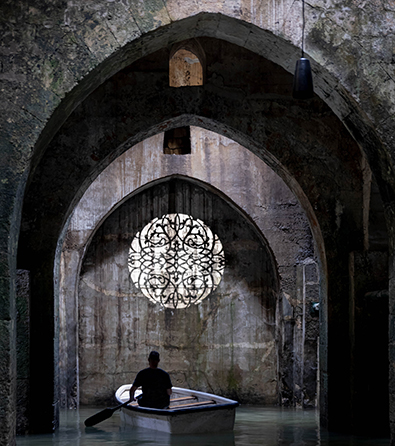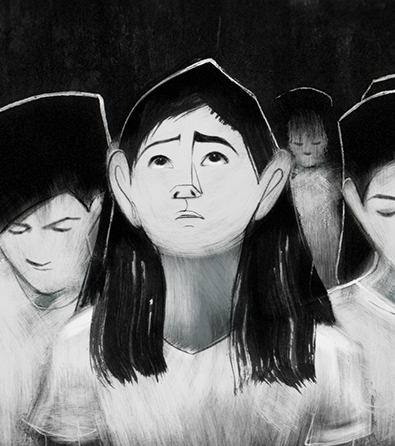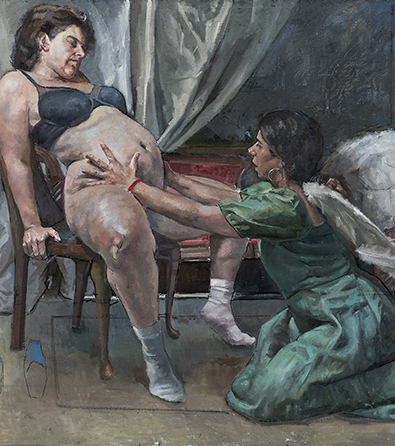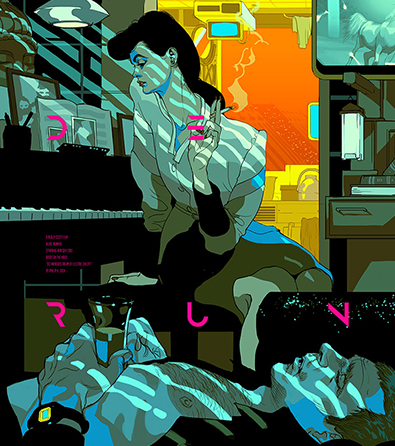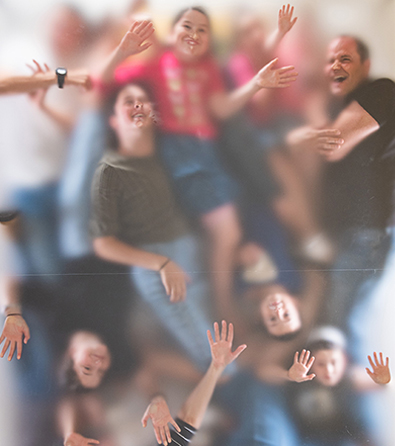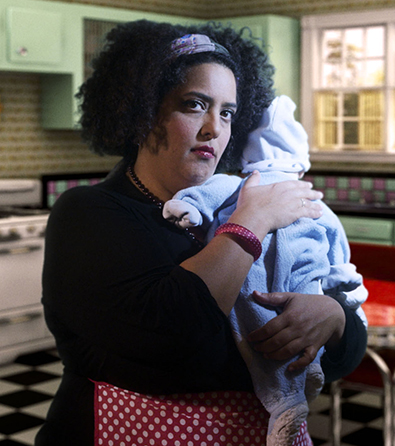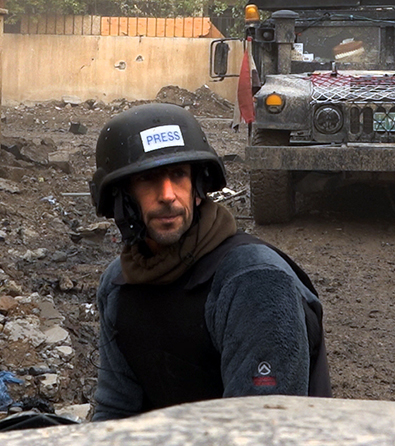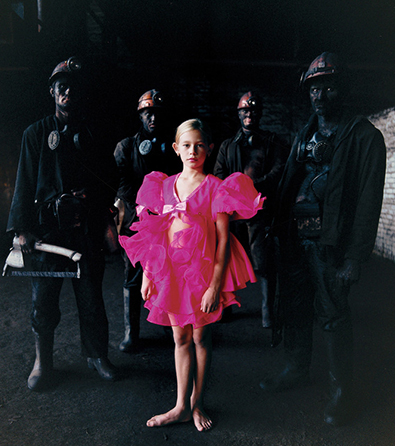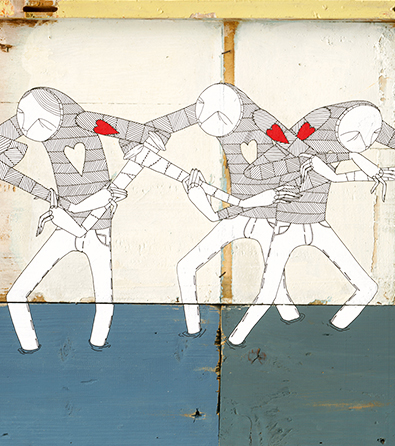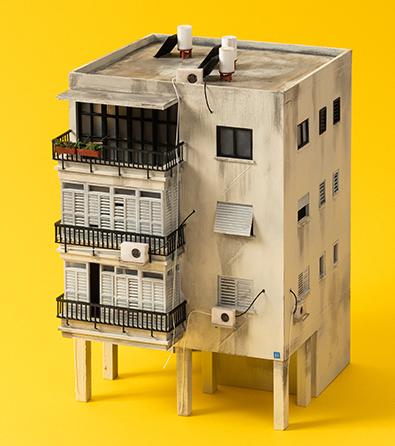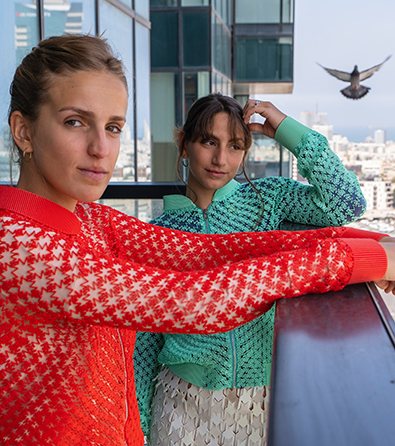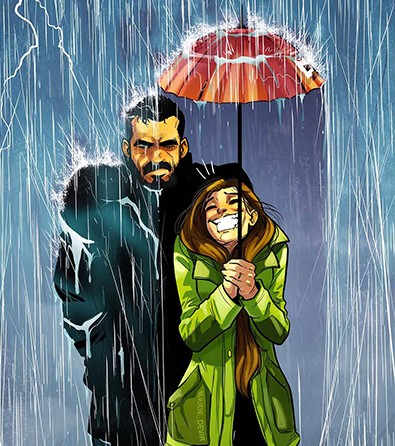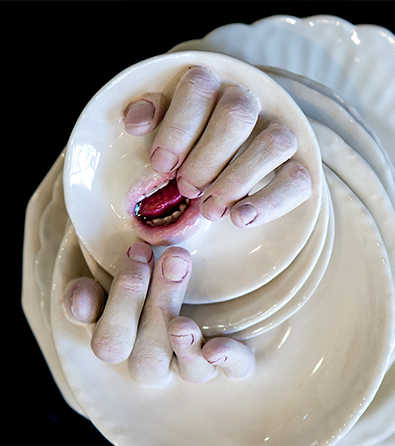Watch a clip from the show I Shall Speak To You – Two Languages. One Love. (5 minutes) at the top of the page.
* To watch this film, please approve YouTube/Vimeo cookies via the blue cookie icon at the bottom left of the screen.
The Revolution Orchestra, led by conductor Dr. Roy Oppenheim and composer Zohar Sharon, is a dynamic ensemble dedicated to creating original Israeli music that seamlessly integrates various performing arts. The founders’ vision is to offer a theatrical musical experience where music is a central element of the performance. Each show features unique compositions by a diverse array of Israeli composers. The creative process begins with concepts developed by Oppenheim and Sharon, which then evolve through collaborations with artists from multiple disciplines, including lighting designers, video artists, actors, singers, directors, dancers, and choreographers.
On April 10th, I attended the I Shall Speak To You – Two Languages. One Love. performance by The Revolution Orchestra at the Israeli Opera House in Tel Aviv. Despite my discomfort attending shows since the war began, particularly at a venue near Hostages’ Square where families of hostages often gather, I felt compelled to experience this intriguing show. The magic that unfolded that evening was beyond anything I had anticipated.
The hall was completely full, the audience burdened by a pervasive national despair. The show opened with the song “A Weekday Song,” conducted by Dr. Roy Oppenheim, as singer Nour Darwish took the stage. The familiar music, Nour’s stirring rendition in Arabic, and Rachel Shapira’s lyrics projected on the screen captured my heart. The evening continued with new, original adaptations of love songs in Hebrew and Arabic. The audience hummed and sang in Hebrew while the singers performed in Arabic, creating an unexpectedly magical atmosphere in these dark days of war. Tears began to flow, and the audience repeatedly stood to applaud, fully experiencing the uplifting power of music. As I left the hall at the end of the performance, I saw people emotionally approaching the singers to express their gratitude, their eyes sparkling with tears, and the word ‘hope’ resonating in every conversation.
I had the pleasure of speaking with Dr. Roy Oppenheim about the creative process behind the show, segments of which are available in the video at the top of the page. He shared that the project began a year and a half ago in collaboration with Beit HaGefen to commemorate the center’s 60th anniversary. Beit HaGefen, an Arab-Jewish cultural center in Haifa founded in 1963, aims to create shared and equal spaces that reflect Israel’s diverse cultures. Oppenheim and Sharon chose ‘language,’ specifically ‘translation,’ as the theme of the show. Oppenheim explained, “I see the show as an act of hospitality, bringing a stranger into your home through translation. Translation is an interpretation and understanding of the other without preconditions. When I hear the translation of a song like ‘A Weekday Song,’ a very familiar song becomes foreign. Yet the familiar music allows the foreign language to reside there without threatening me.”
At the outset of the creative process for the show, I Shall Speak To You – Two Languages. One Love, Oppenheim and Sharon invited pianist and composer Nizar ElKhater to collaborate with them. The trio brought together nine composers, each tasked with creating an original arrangement for one song, and three translators. They also assembled a diverse group of Arab and Jewish singers, including Dikla, Nour Darwish, Ravid Kahalani, and Akram Odeh. The unique singing style and stage presence of each artist transform the new arrangements into a vibrant, multicultural mosaic that reflects Israeli society.
“At the beginning, we viewed the project as an invitation to dialogue, but today I realize it also marks the beginning of post-trauma treatment,” Oppenheim noted, referring to the trauma experienced by Israelis since October 7th and the strained relations between Arabs and Jews. The Arabic language itself has become a trigger for fear and suspicion. Oppenheim emphasizes that, as a result of working on this project and being exposed to the Arabic language through the songs, he now feels that it is particularly crucial to learn Arabic, as the language is key to understanding the culture.
This realization is particularly evident during the show. For example, singer Nour Darwish’s Arabic performance of Hayim Nahman Bialik’s “Take Me Under Your Wings” transformed the song into a touching prayer, leaving the audience in tears. Similarly, Dikla’s rendition of “Ana La Habibi,” translated by Dr. Yotam Ben Shalom, felt as if it were her own song. Originally performed by Lebanese singer Fairuz, this piece resonated deeply on stage. “There is great importance in the experience of reading the original text that appears on the screen,” explained Oppenheim. “When you hear music that embraces you because you recognize it, and the singer begins to sing in Arabic, the Hebrew text on the screen creates a disconnect between the song and the music. This disconnection invites us to rediscover our culture as we read and delve into the wonderful lyrics of the song.” This experience is also felt when listening to the song in Hebrew and observing the original Arabic text on the screen, which evokes a connection and curiosity toward the foreign language.
In my opinion, the decision to focus solely on love songs for the performance is brilliant because beloved love songs naturally connect to emotions that facilitate dialogue. The audience at the performance was yearning for love, comfort, and hope. Spirits were lifted as they listened to the singers perform moving duets in each other’s languages, accompanied by the wonderful orchestra with its wide range of instruments, all under the charismatic direction of Oppenheim.
One of the most moving moments was Akram Odeh’s performance of Amir Benayoun’s song “You Won Everything with Me,” during which Odeh burst into uncontrollable tears. Words cannot capture the profound connection that swept over the entire audience at that moment. Even the musicians in the orchestra wiped away tears, as everyone on stage struggled to recover and continue with the show. Odeh shared his thoughts with me during our interview: “I felt that there were people in the hall who had hope. I sensed how everything connected and opened up at that moment. The orchestra was at its peak, and as I stood on stage singing, I saw women in the audience wiping away tears; it was so powerful and emotional that I broke down.”
Odeh’s involvement in the song—from the translation process to the performance—instilled in him a sense of belonging and a deep connection to the song. Odeh recounted, “From the first moment of working on the project, there was a spark among all of us, a sense of something new and pure.” The first show at Beit HaGefen in Haifa was attended by a diverse audience of Jews and Arabs. In Haifa, a city that advocates for coexistence, there are many shared cultural events. “Many of the attendees at the show in Haifa told me that the desire for coexistence is movingly expressed in the performance, and they are proud that this is the voice representing them. I am proud to give that voice,” Odeh shared.
Odeh is the eldest son of an Arab Israeli family from Haifa. He works as a nurse in the intensive care unit at a hospital and participates as a singer in various ensembles and projects. The hospital management supports his musical career by allowing him flexibility in his schedule. When The Revolution Orchestra offered him a chance to take part in the project, he did not hesitate for a moment. “I am someone who has always believed in coexistence. To embrace the other side, and even if we do not agree, to respect one another,” Odeh shared. “When I saw the list of songs, I was really happy. Although I am Arab, I grew up on Chava Alberstein’s music. Her songs are a part of me.”
The project was suspended on October 7th. “Something in all of us was extinguished,” Odeh recounted. “A period of ongoing darkness had descended. I felt we were beginning to adapt to a horrific reality, but we must not let this black screen erase who we are. When Roy and Zohar decided to continue the project, something inside me suddenly lit up. I felt that especially now, it’s amazing that it continues. We want to express the love between the two languages.” Odeh cited the magic created in the concert hall during the performance as a vision of the future he longs for. Despite the difficult emotions these days, he was astounded by how the audience repeatedly stood up during a performance, half of which was in Arabic. “I know for certain that there are people in the country for whom this is a breath of fresh air. They are waiting and hoping for this kind of partnership. But I wasn’t sure if, after October 7th, people would be ready to hear music blended in such a way. The people in Israel are hurt and at the peak of an emotional turmoil. I understand it’s hard for people to separate the language from the events.”
On the way back from the performance, I was emotional, trying to comprehend what had transpired that night. Why had this show touched me and everyone else so profoundly? I believe the answer is clear. Eight months after October 7th, we are still a country reliving trauma every day. Most of us have lost hope for peace in the Middle East, yet we overlook the hope that persists daily within Israel. Muslims and Jews live here together daily, unaffected by politicians or wars. The events of October 7th underscored the shared fate of all sectors and religions in Israel. Our lives are intertwined: we meet at work, in supermarkets, hospitals, pharmacies, and shopping malls, in mixed cities and neighboring communities. It is our responsibility to draw hearts closer, to acknowledge the culture and language of the other in order to communicate and understand each other. Through this partnership within the country, where we are tasked with educating the next generations, we have the opportunity to deepen mutual understanding and compassion, fostering equality in our society and creating a future we can all be proud of.

